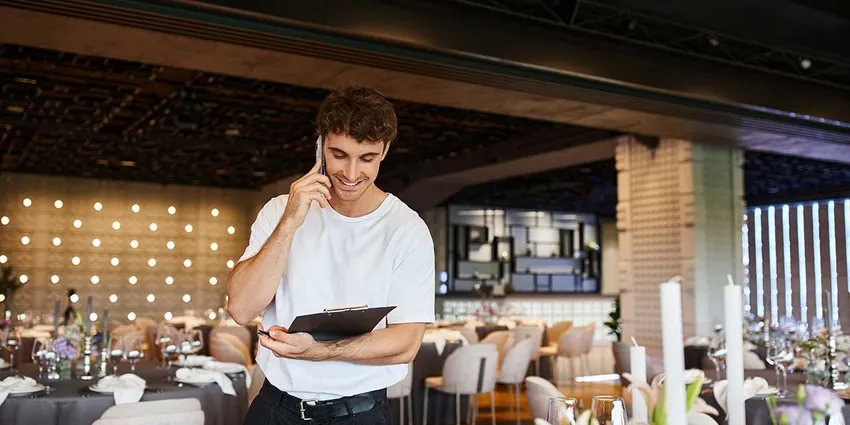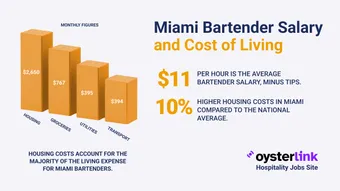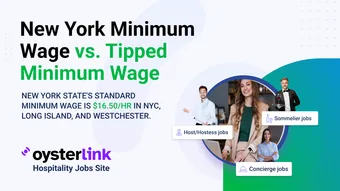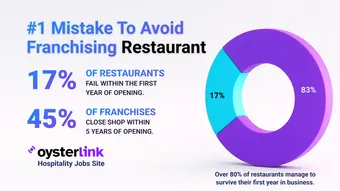If you’re passionate about organizing, creativity, and working with people, becoming an Event Planner can be an exciting career choice. Whether it’s weddings, corporate events, or festivals, the world of event planning is vibrant and full of opportunities. But can you break into the field without prior experience? The answer is yes – and this guide will show you how.
From developing essential skills to finding internships, this comprehensive guide will equip you with actionable steps to start your journey as an Event Planner, even with no direct experience.
7 Tips for Becoming an Event Planner With No Experience
Below are 7 tips on how to become an Event Planner, even if you have no previous experience working in the position.
1. Start with Volunteer Work
Many community events, non-profits, and small organizations need help with event planning but may not have the budget to hire professionals. Volunteering at local charity events, school functions, or festivals allows you to build experience and gain hands-on skills in managing events.
Pro Tip: Document the events you assist with by creating a portfolio showcasing photos, testimonials, and your role in the planning process.
2. Develop Transferable Skills
Even if you haven’t planned large events, chances are you’ve developed relevant skills in other roles. Jobs in customer service, project management, or administrative roles teach organization, multitasking, and communication—key traits of a successful Event Planner.
Highlight Transferable Skills Such As:
- Coordination and scheduling
- Budget management
- Problem-solving under pressure
- Client relationship management
3. Take Online Courses and Certifications
Online platforms like Udemy, Coursera, and LinkedIn Learning offer courses in event planning, budgeting, and vendor management. Completing these certifications not only boosts your knowledge but also adds credibility to your resume.
Some popular courses include:
- Event Planning Foundations – LinkedIn Learning
- Certificate in Event Planning – Coursera
- Wedding Planning for Beginners – Udemy
4. Network with Industry Professionals
Attend local networking events, bridal shows, or corporate expos to meet professionals in the field. Engage with Event Planners, venues, and vendors to learn more about the industry. Many Event Planners started by shadowing others or working part-time at an event planning firm.
Pro Tip: Join event planning associations like the International Live Events Association (ILEA) or Meeting Professionals International (MPI) to expand your connections.
5. Create Your Own Event
Planning a small event, such as a birthday party or corporate retreat, can be a great way to gain experience. Treat it as a professional project by developing timelines, budgets, and coordinating vendors. This hands-on experience will show potential employers your initiative and ability to handle projects independently.
6. Build a Portfolio
Create an online or physical portfolio highlighting your volunteer work, small projects, and relevant skills. Include photographs, event briefs, budgets, and testimonials from clients or supervisors. A strong portfolio demonstrates your ability to handle various aspects of event planning.
7. Apply for Entry-Level Event Planning Jobs
Look for roles like Event Coordinator, Assistant Event Planner, or Administrative Assistant in event planning agencies or hospitality venues. These positions allow you to learn the ropes while contributing to larger events.
Where to Start Looking for Job Opportunities as an Event Planner
Below are some common places where you should consider looking for your first job opportunity as an Event Planner:
- Hospitality and Event Venues: Hotels, conference centers, and resorts frequently hire Event Coordinators to manage weddings, banquets, and corporate events.
- 2. Non-Profit Organizations: Charities and non-profits often organize fundraising events, which require extensive planning. These organizations are a great entry point for new planners.
- 3. Corporate Event Planning Departments: Large corporations frequently have in-house teams responsible for organizing conferences, meetings, and team-building events.
- 4. Event Planning Agencies: Boutique and large-scale event planning agencies hire entry-level staff to assist in coordinating and executing events.
- 5. OysterLink and Hospitality Job Boards: Platforms like OysterLink offer listings for event planning jobs across the hospitality industry, from entry-level positions to senior roles.
How To Find Internships at Event Planning Agencies
Internships are invaluable for gaining real-world experience. Here’s how to find them:
- Check Online Job Boards – Platforms like LinkedIn frequently list event planning internships.
- Visit University Career Centers – Many universities partner with event planning companies to offer internships to students and alumni.
- Direct Outreach – Reach out directly to event planning companies and ask if they offer internships or need assistance with upcoming events.
- Network Through Associations – Associations like ILEA and MPI often list internship opportunities on their job boards.
Additional Tips to Accelerate Your Event Planning Career
- Start a Blog or Social Media Page – Share event planning tips, photos from events you’ve worked on, and industry insights. This builds your online presence and credibility.
- Join Event Planning Communities – Online forums and Facebook groups for Event Planners often share job openings, freelance opportunities, and helpful advice.
- Assist Wedding Planners – Wedding planning is a lucrative sub-field of event planning. Offer to assist Wedding Planners to gain experience in managing high-pressure, high-stakes events.
By following these tips, you can confidently step into the world of event planning, even if you’re starting from scratch. With dedication, networking, and hands-on experience, you can build a thriving career in event management.





